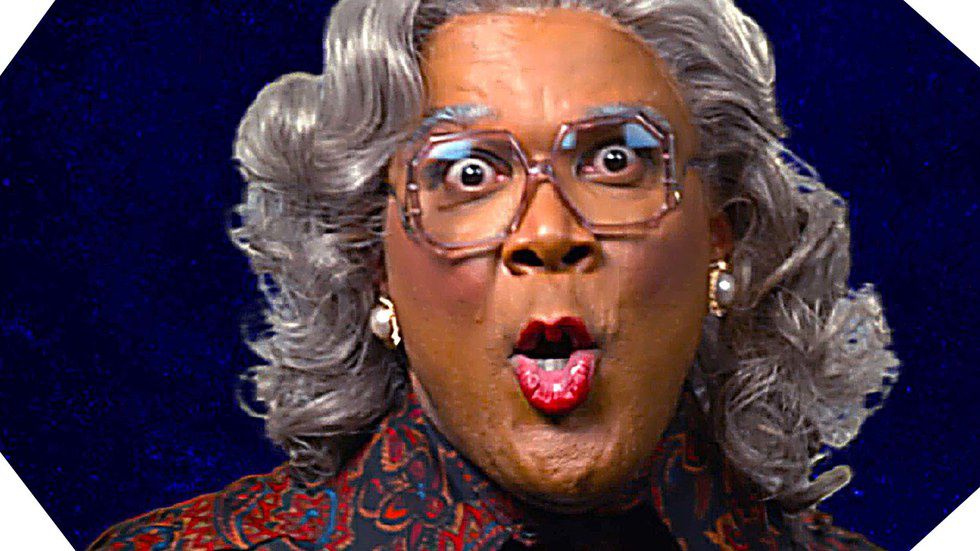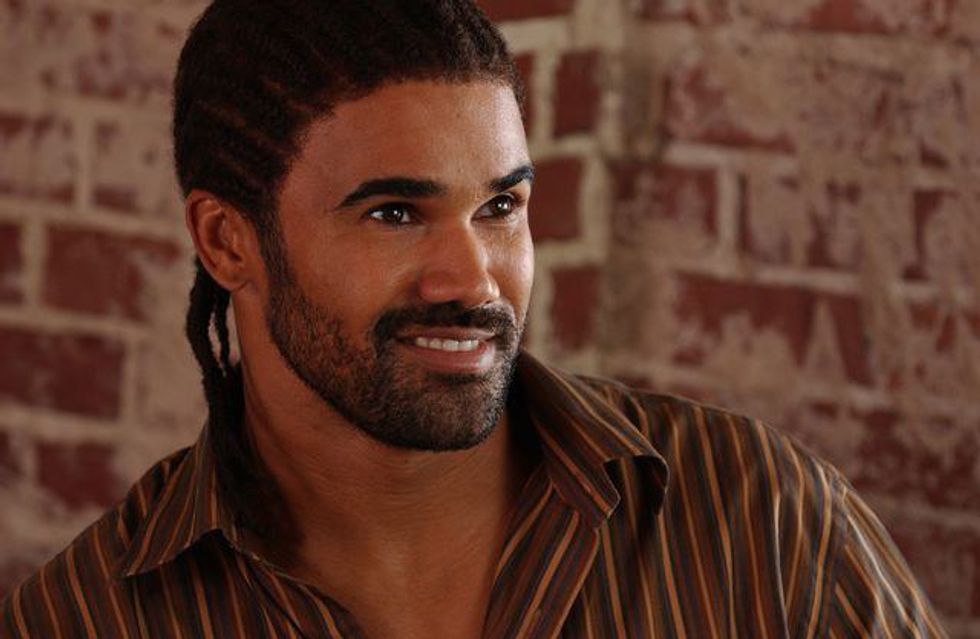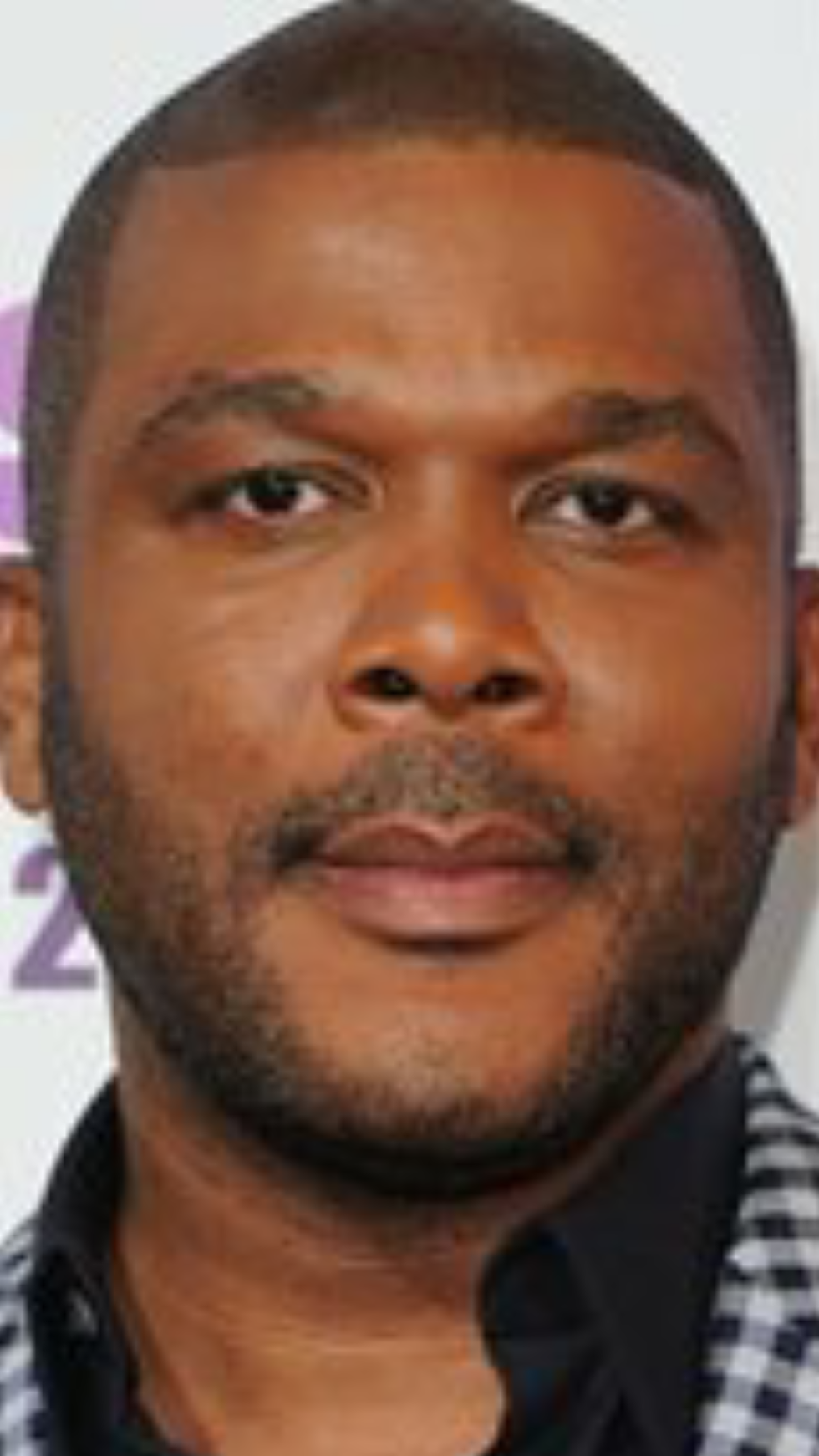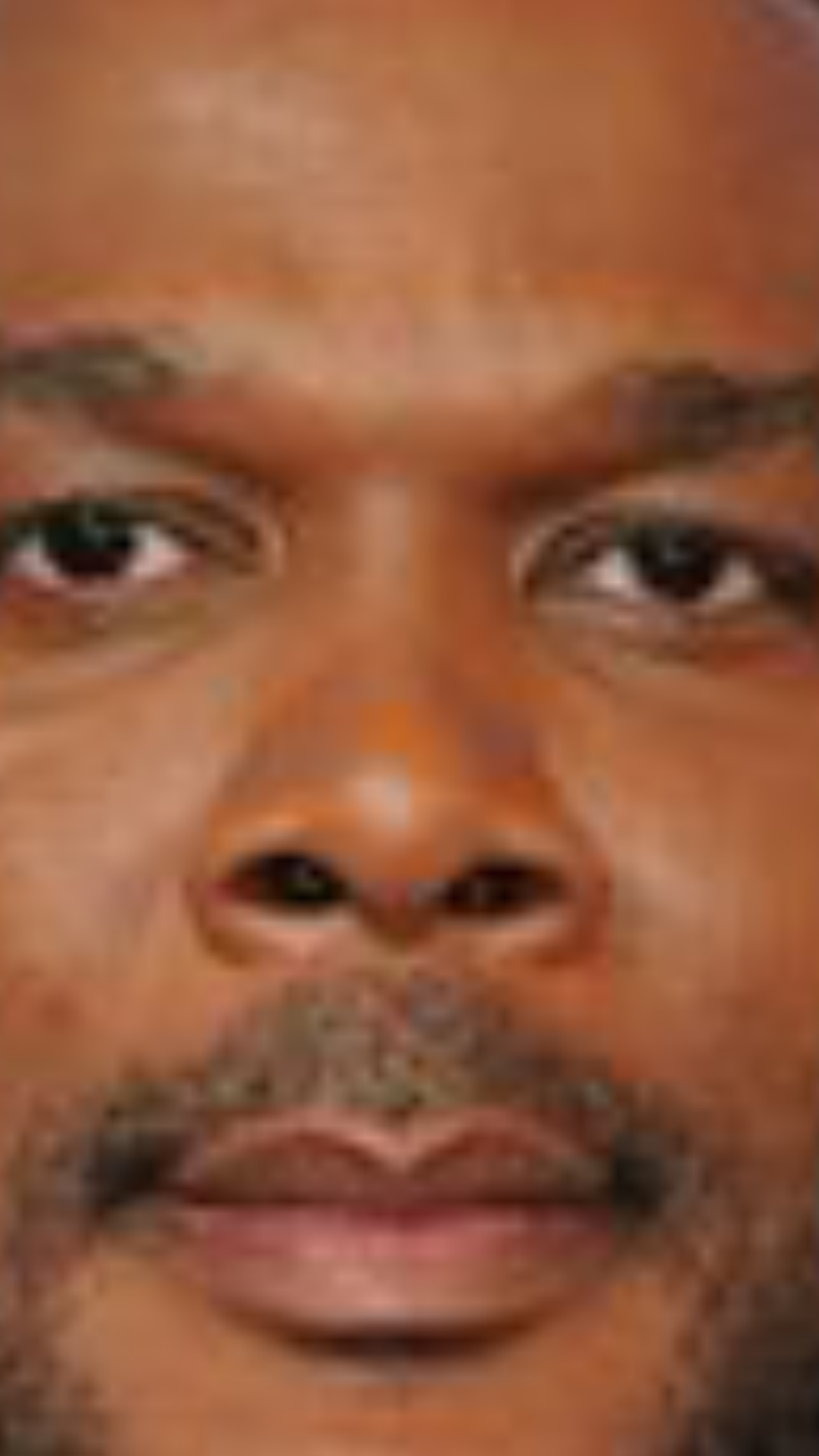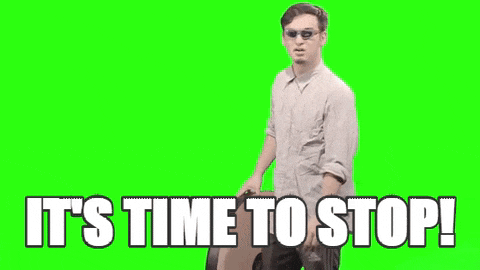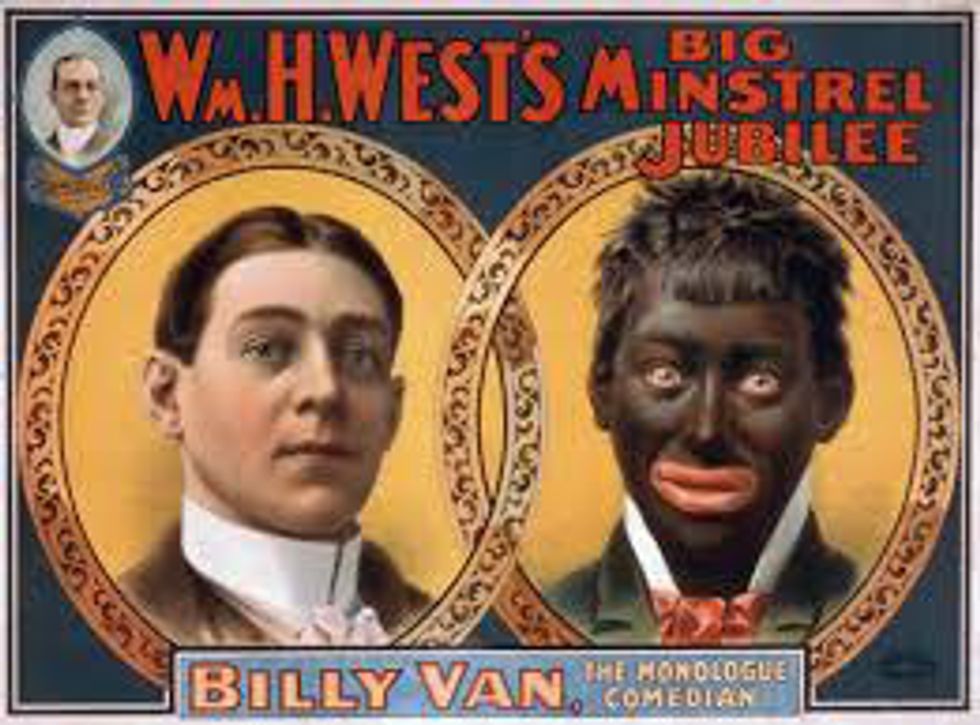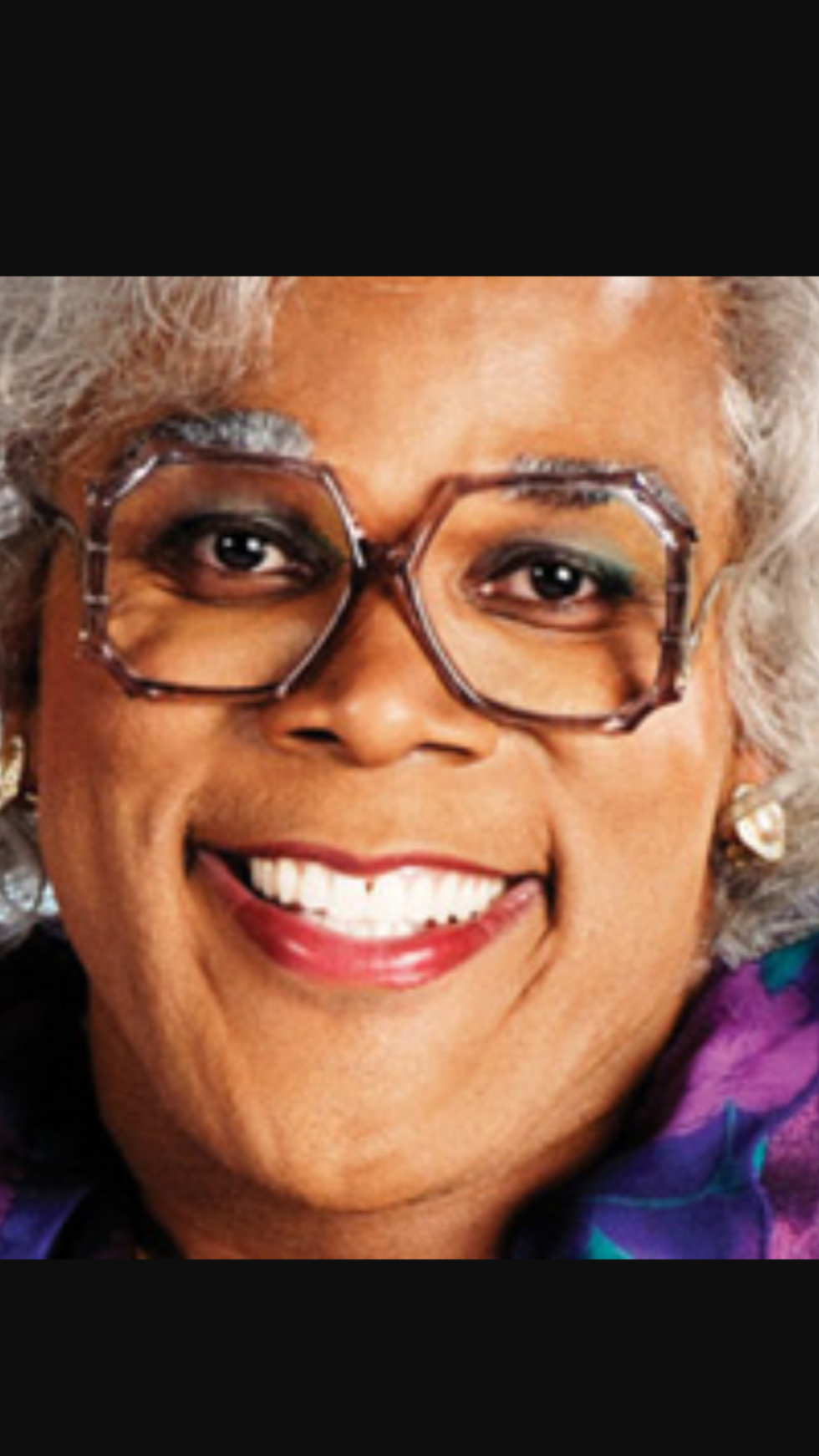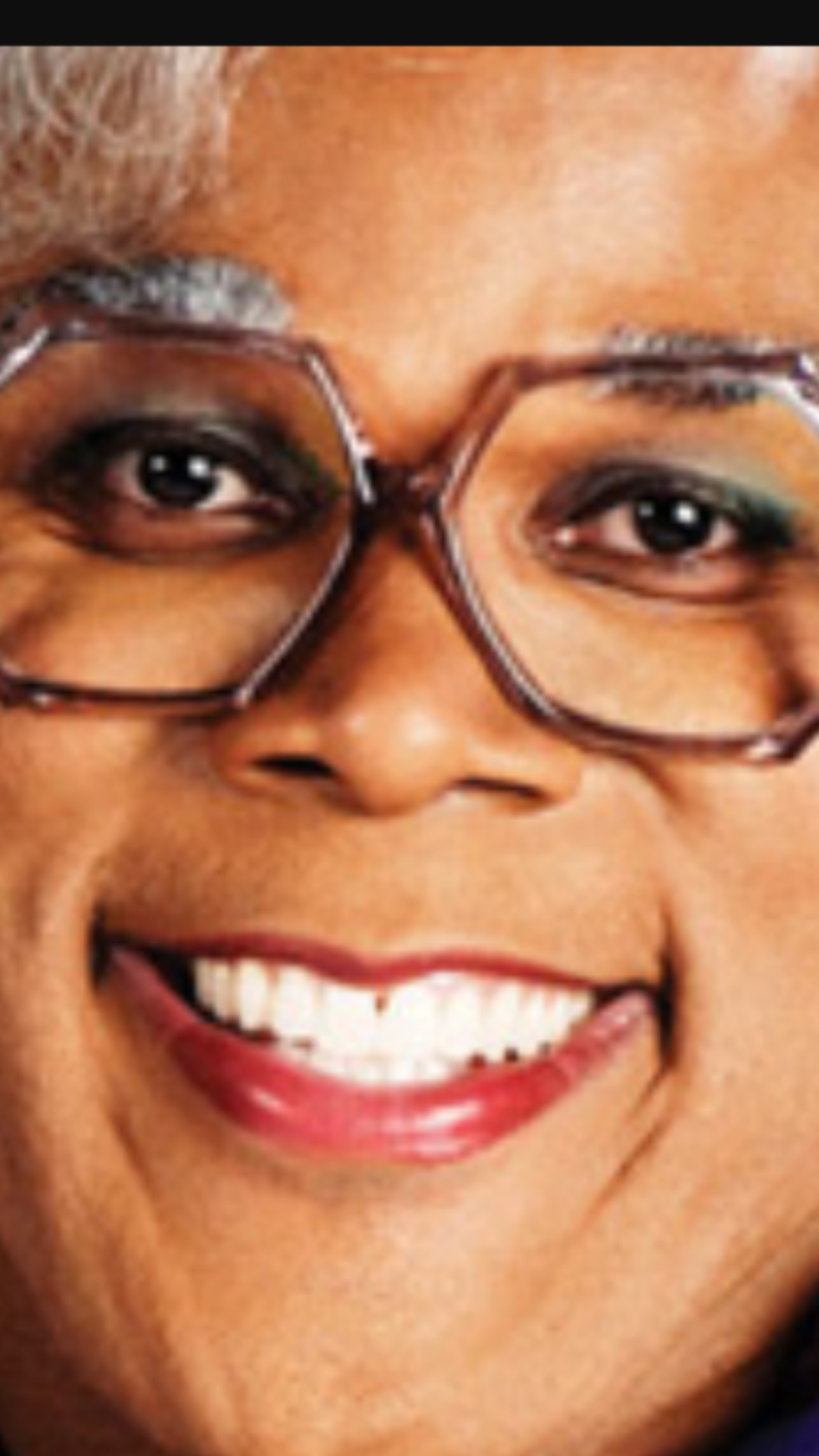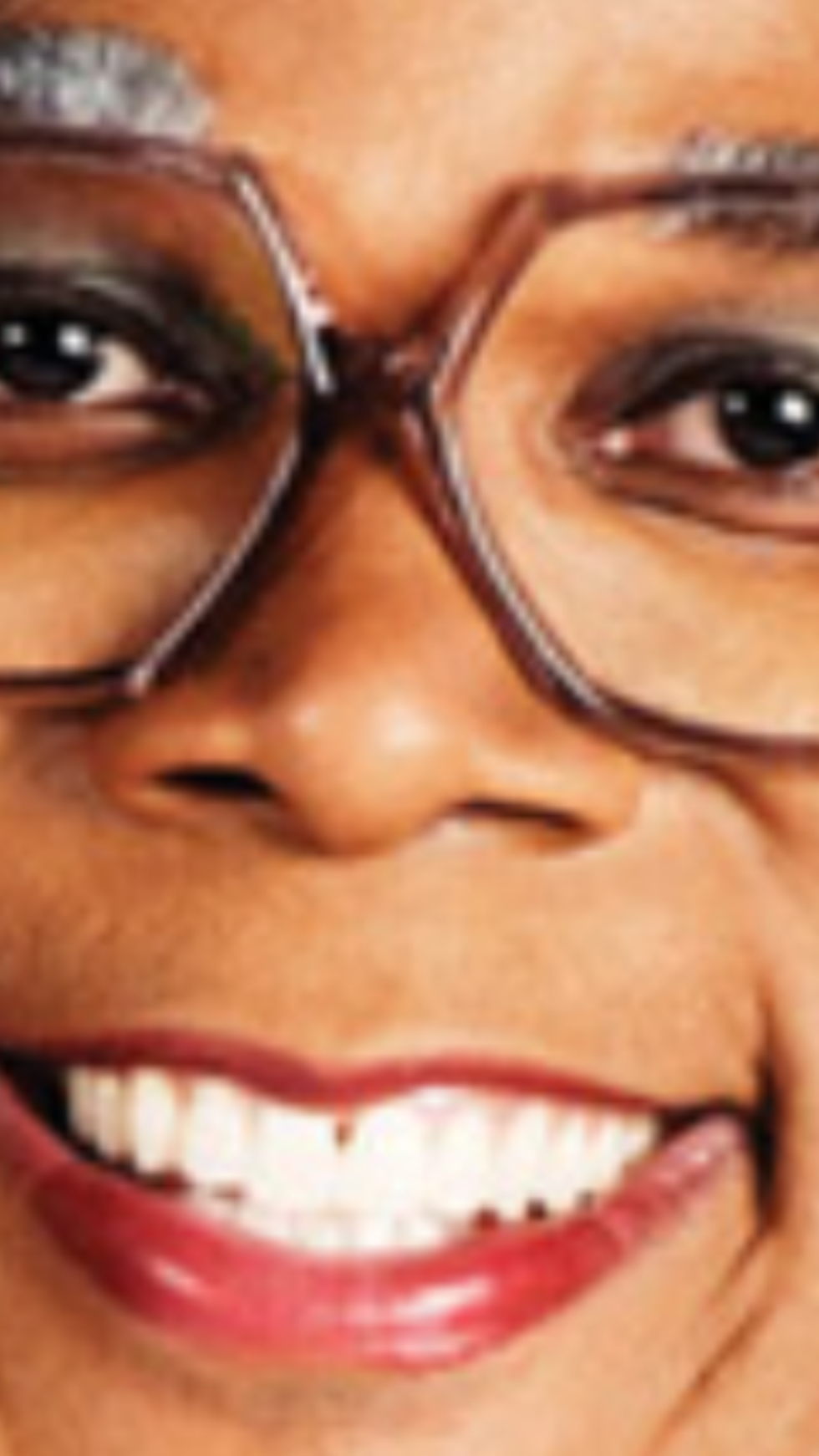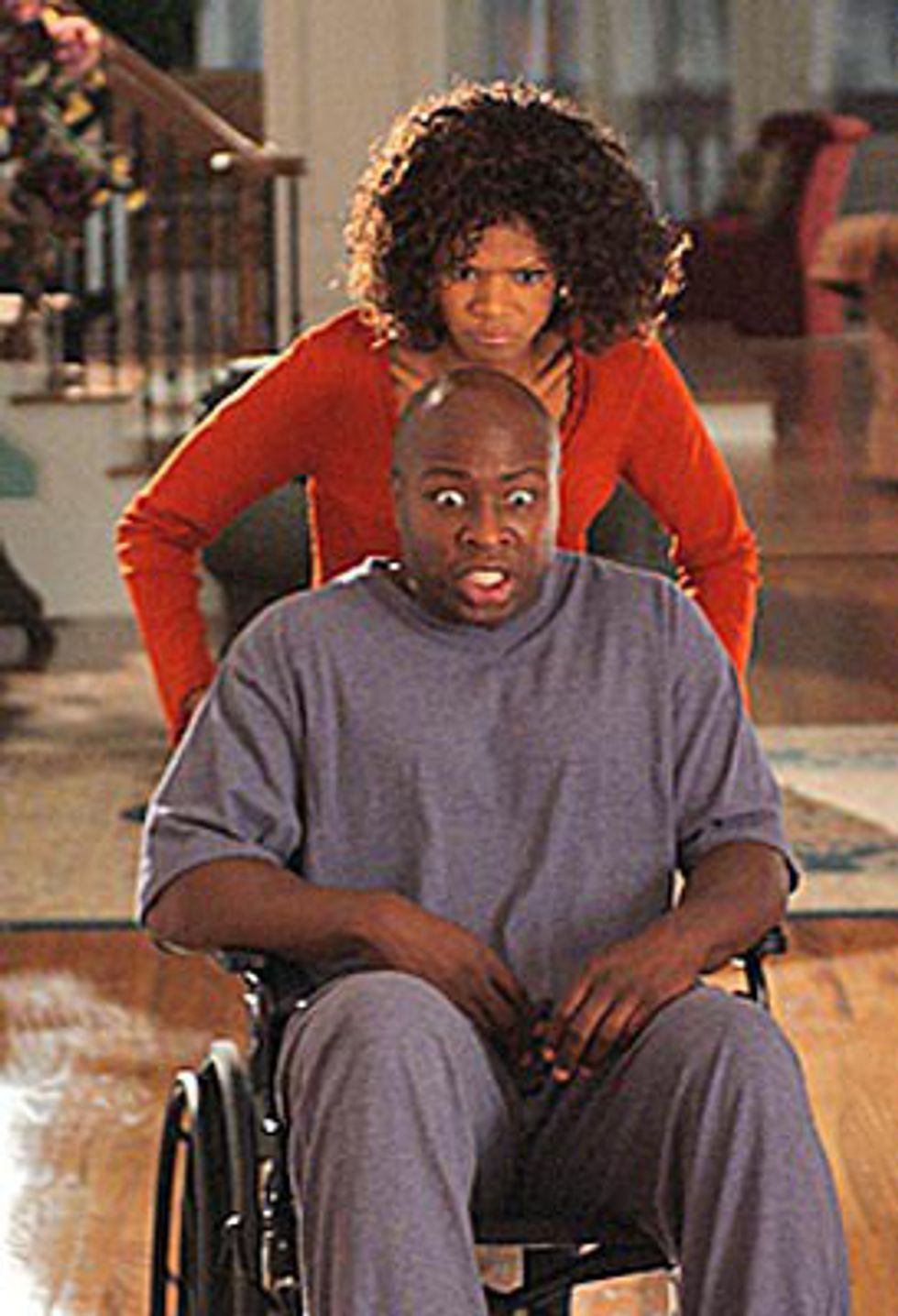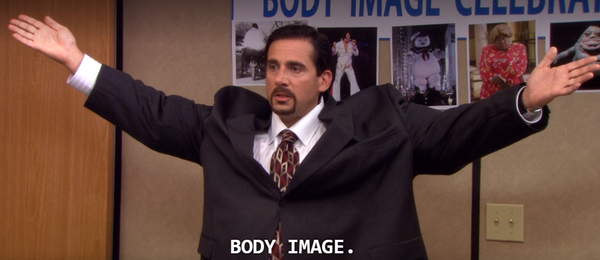*Please remember that the opinions stated below are my own and should be taken with a grain of salt. If you enjoy Tyler Perry's movies, that's great. Honestly, they make me want to drink a blueberry and Clorox smoothie. It's great that you can find enjoyment in something I can't.
Dear Diary,
I haven't slept in five days. What's causing me to lose sleep, you ask?
Not because there's a possibility that a racist, bloated burlap sack of a man could be our next president.
Not because unarmed black citizens are being harassed and killed in the streets by the very men who've sworn to protect us, oh no that's not it.
War, poverty, disease, not even a blip on my radar.
Nope, the true terror is the upcoming trailer for the latest Tyler Perry cinematic masterpiece...
Drum Roll Please!
Yup...Boo! A Madea Halloween.
Just what the world was missing.
Honestly, I'd like to say that this shocks me but with movies like Madea Goes To Jail, A Madea Christmas, and I can't believe I'm actually f*cking typing this Madea's Witness Protection, the only thing that surprises me is the fact that this movie wasn't created sooner.
First things first, it's important to acknowledge Perry's accomplishments. Being a director of color in an industry dominated by white men, the fact that he's made a name for himself is nothing short of amazing. Not to mention Tyler Perry's life was no cakewalk. He's managed to overcome child abuse, sexual abuse and homelessness and now has made a living doing something that he loves. Most of his scripts have a strong message of unity, family, and self-love.
But having a movie with "good intentions" and it actually being a good movie are too vastly different things.
I could literally write an entire f*cking novel on the things that are wrong with Perry's movies. Everything from the crazy tonal shifts from serious to comedic, awkward pacing, and repetitive plot lines makes these movies bad on a technical level.
Goddamn, I could write an entire novel on the f*cked up lace front he slapped on Shamar Moore.

Tyler.
Tyler. Perry.
Why're you doing this?
The success of Tyler Perry's films is a double edged sword to the black community, black women in particular. On one hand, these films definitely open more opportunities for struggling black entertainers, especially since most of his movies feature a black female lead. In a world where actresses of color are in such tight competition for a very small pool of roles, a cast featuring such a large amount of black actresses is a blessing. It gives a chance for black performers to break the chains of supporting actordom and finally take their turn in the spotlight.
It's a shame that Mr. Perry only has about a toddler sized handful of characters for them to play. For years, Perry has written the same handful of toxic stereotypes that only further to affirm misconceptions about black women.
Tyler, honey, please listen to me.
Before we can fully delve into the specific problematic nature of Tyler Perry's films, it's important to know where these stereotypes came from and how they've manifested themselves into our present media.
Beginning in the 1830's, minstrel shows were a form of entertainment that involved white actors donning "blackface" and doing things such as singing, dancing, and completely dehumanizing and humiliating an entire race of people.
Oh, how... delightful.
It was from this practice where everyone's favorite stereotype emerges...the mammy. Initially, it's tempting to write Madea off as a typical "Mammy" stock character. The Mammy character is usually an uneducated, overweight woman who is portrayed as sexually repulsive and known for her never ending amount of sass. And the cherry on the top of the irony cake, they were usually men dressed in drag.
Does this
sound
FAMILIAR!?!?!
However, the Mammy character was also submissive, matronly, and nurturing. Which is everything Madea is not. Known for her abrasive nature and affinity for breaking the law, Madea is certainly not the Virginia Minstrel's typical mammy. Yes, she has some "Mammy-esque" qualities but Madea, and to be honest most of Perry's other characters, more closely embody the "Sapphire" archetype.
"The Sapphire" stereotype? Not ringing a bell?
Well, the Sapphire is more commonly known today as the "Angry Black Woman". Originating in Ah yes, the stereotype that is Perry's bread and butter. For Corn's sake, the title of his first film debut was Diary of A Mad Black Woman.
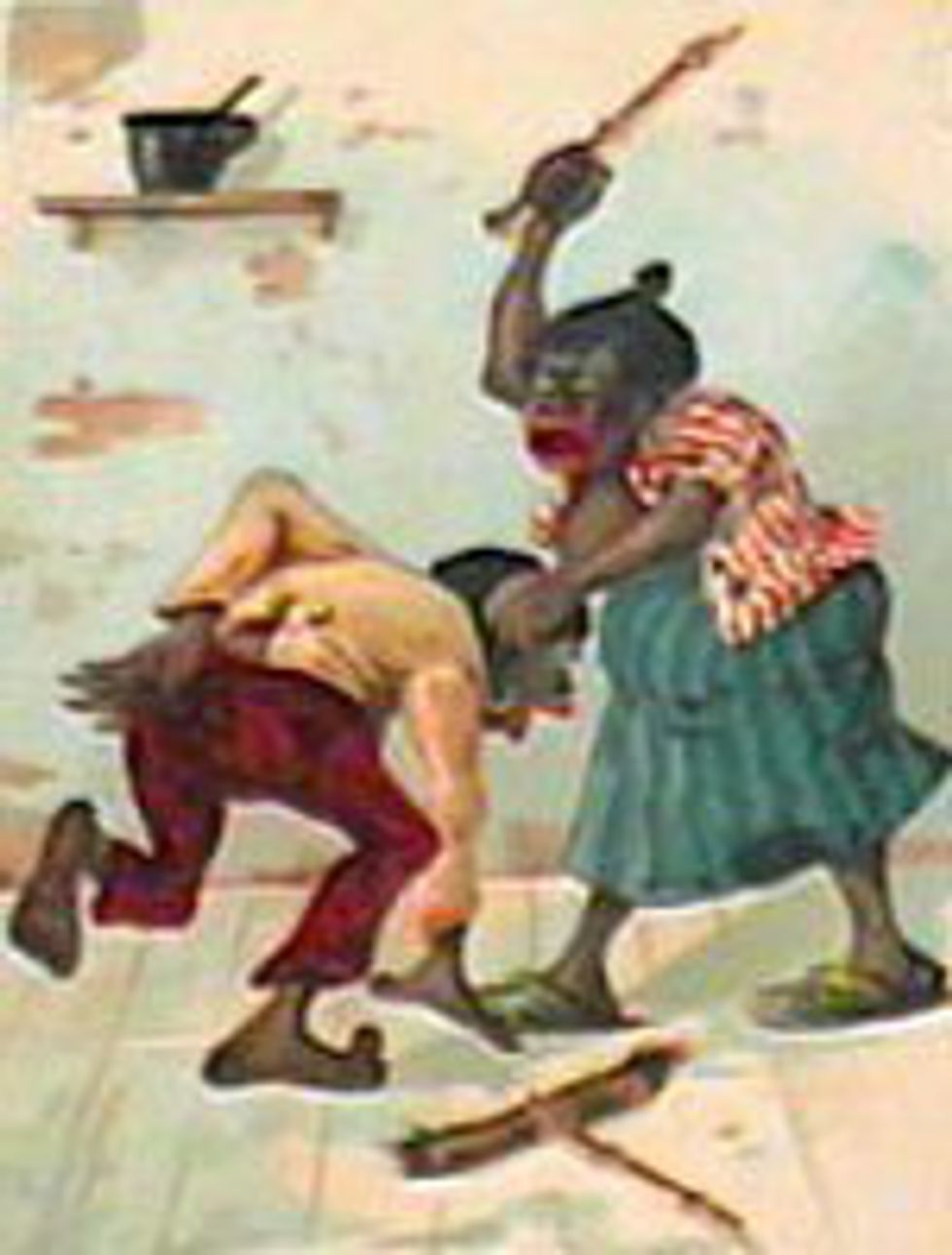
'Well what's wrong with "The Sapphire" stereotype?' you may ask.
'Isn't a character doesn't put up with anyone's bullcrap a well written character?'
'Isn't being strong a trait to be admired?'
And my answer to that is "No."
It is possible to write a character with strength without making her a Sapphire. One should not confuse aggression with strength. Perry claims to have based the Madea character off of women he knew. To quote him ". . .exactly the PG version of my mother and my aunt, and I loved having an opportunity to pay homage to them. She would beat the hell out of you but make sure the ambulance got there in time to make sure they could set your arm back. . .". You can tell that he has a deep love for the character and did not write the character from a place of malice. Anybody that sits in a makeup chair for over six hours obviously has a passion for what they do.
But the stereotype of the sassy black woman strong arming and emasculating a man is outdated, offensive, and disgusting.
It's these stereotypes that enable people to accuse black women of being "crazy" whenever we show the smallest of emotions. It's these stereotypes that allow people to treat black women any which way because our emotions are not valid.
So yes, this black woman is angry.
I'm angry that the "mad black woman" archetype seems to be sticking around.




